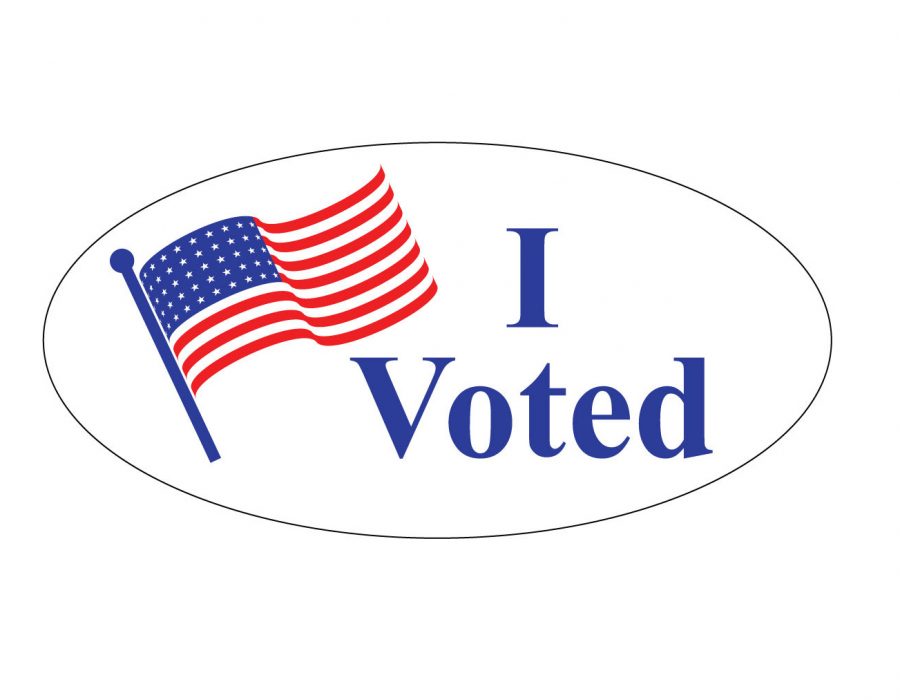Five things to consider at the polls
Steve Corbin, UNI professor emeritus of marketing, discusses five things to consider before going to the polls on Nov. 6.
Oct 29, 2018
Voters will soon decide, in a forced-choice decision-making manner, if actions at Iowa’s Capitol under one political party (GOP) made Iowa a better place to live or if change is needed. Five significant issues should be paramount in the voter’s mindset.
First, 72 percent of Iowa citizens feel Gov. Branstad and Lt. Gov. Reynold’s dictated 2016 privatized Medicaid health insurance program is a problem for 783,000 low income and disabled Iowans and their health care providers. While measuring “proper health care” is difficult, the financial issue is concerning. When the State of Iowa ran the $5 billion health care program, administrative costs were 4-5 percent; the cost now is 12-15 percent for profit-managed care companies to operate.
- • • Voter’s forced-choice decision number one: what is the least costly option for taxpayers to support, paying 4-5 percent for a state-managed health insurance program or paying 12-15 percent to out-of-state profit-seeking companies?
The second important issue is school funding. While Republicans state they’ve given millions to public education, they can’t hide from the fact that investment in our public schools has been the lowest in Iowa history for eight of the last nine years. Resource support has taken Iowa to the bottom half of American states. Thankfully, GOP’s attempt to transfer nearly $200 million from public education to home schooling and private education — they tried to hoodwink the public by calling it “revenue neutral” — was not successful.
- • • Voter forced-choice decision number 2: what is more important, providing financial support to 500,000 K-12 public education students or shifting resources to support 47,000 privately tutored students at the expense of public education children?
Third, Iowa lawmakers have continued their massive corporate tax giveaways. Business tax credits have doubled in the past five years and 60 percent of the recipient companies do not pay Iowa income tax. Since the Tax Foundation (independent and nonprofit) ranks Iowa as the 6th worst state for overall tax climate — plus we’re number 39 on workforce and number 34 on economy–corporate tax entitlements are not working.
- • • Voter forced-choice decision number 3: should we elect lawmakers who will use our taxes to support non-accountable out-of-state companies or support candidates who will invest in small and mid-sized Iowa-based businesses that pay Iowa taxes and employ fellow Iowans?
Fourth, 63 percent of Iowans voted in 2010 to pay more taxes ($0.00375) to create the Natural Resource and Outdoor Recreation Trust Fund and improve outdoor, wildlife habitat and water quality. For eight years legislators have blatantly ignored Iowa voters.
- • • Voter forced-choice decision number 4: who do you want representing you, one who will oblige their constituents’ voted-upon explicit request or one who ignores the will of the people?
Finally, due to purposeful budget cuts, state coffers went into the red, only five state troopers patrol Iowa at night, the human services department lost 908 workers to monitor child welfare and related cases, nursing homes aren’t inspected, 4,000 untested rape evidence kits exist and 36 unemployment offices, two mental health facilities and a juvenile home have been closed. The Des Moines Register’s Oct. 18, 2017 editorial succinctly stated: “The time has come for Iowans to contact their state lawmakers and demand concrete answers to this one question: How small should Iowa government be to satisfy you?”
- • • Forced-choice question for political candidates who tout the “smaller government” phrase: define, specifically, what is the proper number of child protection workers, unemployment offices, nursing home inspectors, family planning services, state troopers, mental health facilities and untested rape evidence kits?
Voting on or before Tuesday, Nov. 6 is all about making forced-choice decisions for the betterment of Iowa . . . it matters.


















